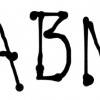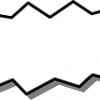Negative SEO - A Reality
"Paranoia" must think some of you, and honestly, I used to think the same. I didn't even believe that this was possible, even though Google mentioned that they have ways to detect link spamming. But the reality proved me I was wrong.
My Traffic Is Constantly Going Down
I did complain a little on the forums about my declining traffic, and it seemed like there was no explanation of my sudden decline. Looking at Quantcast's traffic graph for HubPages, it didn't quite add up. I have slowly given up, and finally decided to move my content one by one to personal blogs, in an attempt to salvage the work I put into this former Squidoo account. I only moved a few hubs, but I intended to move more in the future, hoping that a miracle would happen and my traffic will come back.
I Found The Reason for Traffic Drop!?!?
I didn't understand why I suddenly had such a huge traffic drop. I know some other people complained about traffic loss too, but I cannot know if they are as affect as I am. That was until today, when I was checking my stats in Webmaster Tools for my other websites, and I accidentally accessed the "Links to your site" tab for coffee-break.hubpages.com. Dozens of domains were linking to my pages between 100 and 4000 links. No matter how good is my work, there is no way a domain would link 4000 times to my 100 pages. This means 40 links per article. I immediately recognized spam. My first steps were to make a request to disavow the links, however, I am not sure what would be the result.
Can I be certain that this was the cause of the traffic drop? No, I can't, but it is the only logical explanation for now.
WHY?????
Now paranoia kicks in, why did this happened? Who would spam the web to bring down my traffic? Is it only me, or is it widespread?
Did this happened to other webmasters as well? If you think that negative SEO doesn't exist, you should know that the keyword "negative SEO" has 480 average monthly searches.
And if you think I shouldn't have disavowed the links, note that I briefly checked 20 domains, and they either weren't accessible anymore, or the main page was restricted, or there was a spam site.
I should have suspected this when one of my hubs was literally attacked with fake traffic from China. Which I reported to HP.
Advice for Hubbers
My advice for those with traffic plummeting is to set-up their webmaster tools account and check for links to your site.
Don't disavow yet any links, wait to see my results in a few days.
If you have any weird links pointing to your site, leave a message here, I'd like to know if I was the only one targeted.
DorianDorian, I except what you have said, as I know you well.
I have reply because I want to follow this subject as I'm one that have lost my traffic.
All the best, I hope that this gets sorted out, otherwise we are just wasting our time, working hard and getting nowhere.Maybe it's an attack on hubpages and you are just a part of it so randomly selected you, along with others.
Other than that, googles guidelines about disavowing links are first to try to contact website owners directly before disavowing using GWT but I think it is useless as spammers do not care about messages.
Also, I must say that you should not be so optimistic about that "in a few days"... I think after you disavow links they are not immediately removed and positions/traffic returned back. I think you will need to wait some time, even couple of months until next googles big algo update. Not 100% sure as I never had an issue with problematic links but should be like that.
What you are right is that people should have GWT installed and from time to time check if some issues are there.It plays a part. The Squidoo merger and recent Panda update are more significant factors though. If your traffic plummeted after the 19th of September, you were hit by Panda. There's not much you can do here. Your content can be great but you're still fighting an uphill battle because Hubpages as a whole is unfairly judged by the Panda algorithm.
Then you have the Penguin algorithm, which looks at the links pointing to your subdomain and pages. If these are spammy, you will be penalised by this algorithm. If spam links are decreasing your traffic, using the disavow tool probably won't result in a return to traffic until Penguin is refreshed.
Look at every linking site on a domain basis. If the link is 'dofollow', and the site is spam, you can safely disavow it and it will only benefit your own site in the long run. If the site looks like a decent website, with its own traffic, content, and links to authorities that reinforce its own content, that's a good link to have around.
Any links that are 'nofollow' on the other hand, require nothing on your part. It doesn't pass a boost or a penalty to your site because Google doesn't factor it into its ranking. I'd still disavow spammy nofollow links anyway though.
Also, if the entire site is spam, disavow the domain, not the individual pages. You're wasting significant amounts of time otherwise, and they could link to you again in new pages in future unless you do this. If it's a good site, but the individual page on the site is somewhat undesirable, disavow that URL only.So Maffew - Let's take this as an example: skincare.com has no content, just ads. There are several URLs that start with that name with a suffix attached, e.g. skincarealways.com. These sites all forbid entry and all link to the same hub. My Google Webmaster indicates they are redirects, i.e. other ads on the forbidden website are accessed through that link. Is that a disavow?
I would file a DMCA with the host. I had a similar situation, and initially the host (Hostgator) replied and said they could see no links. I replied and said that if they clicked on the link I gave them, they would see that my Hub was being used as clickbait. They closed down the site.
Actually, I don't know what disavow is. I reported it to Google as a spam site and listed the suffix sites as well.
If your Hub has been copied on another site, or if you're getting a message that it's been copied and it redirects somewhere else - that's when you file a DMCA.
A disavow is a completely different thing. That's where a site has simply linked to your Hub - it hasn't copied anything at all. Usually that's a good thing, but you don't want poor quality, spammy sites linking to you so those are the ones you tell Google to ignore, by disavowing.So let's say a website has linked to my hub. Now another website inserts a redirect in their meta-text using my hub, so that someone who clicks on my link on that first website is sent to their redirect, instead of my hub. Is that possible? So they get all the link clicks that I should be getting? is that click-bait?
To be honest I'm not quite sure how and why it's done, but they're not stealing links made by someone else. They're using a copy of your article on a web page to attract traffic, and that page then redirects immediately somewhere else. Clickbait isn't the right term for it but I've forgotten what it's called!
A disavow is a process that you can read about by searching it online.
Basically, you go through your links on Webmaster Tools to see whether there are any malicious links to your work.
You then contact each one asking them to remove the link. Some do, many do not.
Once you have done this, you list all of the ones you want to have disavowed and send it to Google using their guidelines.
If they agree that you have a problem, they will not remove the links, but they will make them no follow.
It is a very tedious process that takes a long time and there is no guarantee that Google will give you the support you seek.
In my case, they did, but I'm not sure the time I spent was worthwhile.
I have read several times that Google does not penalize authors for these types of links because they know people have no control over who links to their work, so it is up to you whether you want to spend the time to do this.
I do know that I was absolutely shocked to see who some of these sites were.As far as I understand, we can no longer use Webmaster Tools since we no longer have sub-domains.
Hello Dorian
I've also questioned the reason I have multiple links (over 900) from unknown sources and if this is why my traffic has been dropping. Some of these are duplicates prefixes with different ending links that have nothing to do with my articles. You are not the only one targeted and it's affecting us on a large scale. The question is how to deal with it. I'm spending more time fighting copy-cats, plagiarists and unauthorized links than I am writing articles. This is non-productive and frustrating.
My articles mostly have all the blocks ticked for "superb hubs" results and yet the scores are plummeting, too. Even on my latest which has had much activity in the past two days with all positive, supportive comments, yet the score is dropping like a rock.
PegPeg,
As other people suggested, take it on a per domain basis. If the domain looks spam, disavow. If the domain looks a legitimate website, you can keep the links. Also more than a few links from the same domain should trigger your attention. When someone links to your article as a resource, or to reference it, they do it with one link.
Make sure you don't disavow ask.com, google.com, pinterest.com, etc...
I hope this helps,
DorianThank you Coffee-Break, I just spent the last few hours downloading the latest links on Webmaster Tools to an excel file, sorting it (A-Z) and going through over 3,000 links line by line. I deleted all the ones I wanted to keep, like links to other hubbers, to Pinterest and to my own blog. The spammy ones that had hundreds of similar prefixes (like couponmattress.com and hivescure.com) I left on the report then submitted to disavow. I'm sure I made a few errors but Google WT accepted the file. This is only the second time I've done this, but I'm finally getting the hang of it. I hope it helps.
Peg
I have observed this a while ago in one of my sites but did not know what to do as I did not want to open the site and ask them to remove the link. They might just do more so I ignored it for a year until months ago, Google got in touch with me that my site was spammy. I copied my articles and deleted the site. I was upset but I did not want to deal with all the disavow and asking sites to remove links. I have 3 hubs copied here and I did the work to have those resolved. It's over a year now and it has not been resolved. My hub was unfeatured for lack of traffic. It is very discouraging but this is what we will be facing more of. I have seen many sites have already been weeded out by Google but they just reappear in different names.
I don't think the linking has much--if anything--to do with the traffic loss.
My hubs don't have any strange traffic/linking sources and traffic is only 20%
of what it was before the Sept hit.
I've lost 90% of my Google traffic.
I have many links from crazyerrorland with a server in Germany. When I looked it up, it said "site forbidden" I have tried to find out more info, and confusion reigns. In one place it talks about Alexa that gathers statistics from our sites. It is impossible to figure it out,, but I may tackle it tomorrow when my mind is fresh. Sorry about your links and good luck. Thanks for posting.
I just went to a list posted on this thread of the top spammy sites and the above site is on that list. I am not too happy but glad to find a thread with great information. Thanks again.In my oppinion, negatif SEO is come from :
1. Negatif backlink from porn website and spammy web
2. Poor content
3. Over backlink with no anchor text variation.
Thanks.
Crumbs, I just had a look and I've got over a hundred links to several pages, one or two Hubs per domain linking, then when I tried to look at those domains they all link to the same site, and I can't actually see any links. That doesn't look to me like a legitimate site.
I guess it's time for me to lean how to disavow links.I had no idea what a disavow link was. Have been doing some research, still don't know how to use it.
Not sure I'm allowed to put a link here: http://www.quicksprout.com/2014/05/28/w … avow-tool/ it may be helpful:)
Well, I'm amazed. My little account here at Hubpages has also been hit with spam links. Webmaster Tools shows that two of my hubs - both health related - have been hit with over 1000 links. When I tried to see the domains of the two "sites" that created so many links, I only got a message saying the server was not found.
I don't know what to do.If it is not a big number of risky links there will be no harm for your hubs. But if spam links number increase then you should work on it.
Googles guidelines on that are pretty simple:
1. Try to contact webmasters of those sites and ask for link removal
2. If that didn't work - disavow links using google webmaster tool
That disavowing links means you are telling google that you have nothing with those sites, didn't buy those links and would like to have them removed and not counted in search algo.
p.s. One problematic thing with you is if articles are about health as google is a bit more strict when niche like health is in case. They give more focus on health, gambling, adult and such niches.I think disavowing tells Google a little about the site linking. And if they get multiple disavow requests for a single domain, they can get an opinion on that domain.
If the website linking to your pages is a bad site, (not accessible, spammy kind of sites, etc...), you don't need any links from them.
I can't give any advice to anyone, but in my case it's clear. I don't want mass linking to my pages from spammy sites.Yes, it is very true. If google gets a lot of disavow requests for a single domain he will for sure take a look on it a bit more carefully.
But still, disavowing links for sure tells google not to count that link in their search algo. It is a well known topic in SEO circles in recent period and people did analysis on that and reported traffic got back after extensive disavowing. And they reported it happened after major google updates.
Coffee-Break, I have two personal sites that are health related, but I have no obvious problems from Google with those. And there are no spam links going to those non-Hubpages sites.
I suspected it was a widespread problem, and fellow hubbers confirmed it here.
I will try to post on Google Webmaster forums, see if anyone there has a suggestion, although there is much negativity in there.I'll have to check into my account too. I just got hit again.
Where do you go in Webmaster Tools to get this information?
https://support.google.com/webmasters/a … 8487?hl=en
On that url is the info about how to disavow links... But first you need to make a list. Anyway, to see links to your site go to GWT, then to Search Traffic and then to Links to Your Site... On that page you have "Who links the most" part where are listed all the links to your site so you can analyze themThanks for the help. I found some strange ones with as many as 405 links from one site. When I try to access it, it says it is forbidden. I think it could be our problem.
I wouldn't attempt to use the disavow tool before a major Penguin update. Unless you have already have a manual or algorithmic penalty, you may only add more problems with suddenly trying to get rid of thousands of links.
Google recently announced that it will be suspending disavow requests until after the Penguin update takes place.
- Lorelei Cohenposted 11 years ago
0
Has this been reported to the powers that be at Hubpages so they are aware of the problem?
I am sure that they are very aware of any problems of that kind... As I do SEO and track things all the time I see that Hubpages are very strict with their rules and they follow googles guideline and changes...
As you can see, now they suggest hubs of 1250 words, 3 images, 2 vides, summary... It is because in recent period google likes a lot more long articles rich with images and media... And that summary part is actually meta description...
One of the reasons why our profiles and hubs are on subdomain and not subfolder is actually to prevent worldwide problems if individual user is problematic. So if something affects userxyz.hubpages.com it will affect personally him, not hubpages in general.
Because google counts subdomain something like different domain, almost totally new website. If it is like hubpages.com/userxyz then spam links could hurt hubpages sitewide
I don't know where or how you guys found the links, but I have 2 hub accounts that have way too much traffic to my pages. They actually show up on the traffic part. One of the hub accounts only has 5 hubs but has visited mine 114 times....what for?
This yandex.ru is a bot that I tried to keep off my WP sites, but it's here.
Going to try to find where those links are.lol, yandex.ru is a good bot for you... actually it is the most popular search engine in Russia so it is good to have traffic from another search engine...
Traffic sources and links are two different things. Yandex is a search engine, which is why it indexes this site. If you are getting traffic from another Hub account, it's because your Hub is showing up under 'Related Hubs.'
Kathy, good you brought this up. I was concerned about this site, too, as I get traffic from this.
That .ru is a sure sign that the site is from Russia...and there are tons of spammers there. I had to disavow several when I ran my domains through Google.
I found yandex.ru on my list of traffic too. How can we get rid of them?
I've noticed the same thing. Many sites linking to hubs that you can't see the site. In one case I have over 3,000 links to only 20 hubs. When I do a whois on these sites, they are all owned by the same company out of a Central American country. Obviously, these aren't any good and can't be any good for hubpages as a whole.
I assume that the links that point to a squidoo url and are redirected to a hubpages url are still counted in webmaster tools?They should be counted. You will see for these ones a note in the GWT "Via this intermediate link:" when you click on the pages for more details.
I just checked webmaster tools for my Hubpages account, and low and behold, I've found about fifteen thousand links that appear to be coming from spam sites. "acidreflex.net" is the winner with 1,088 links to 5 of my articles. I'm following this topic.
that site linking to your hubs is some kind of parked domain... many parked domains sites use scripts to generate links, scrap some content and similar techniques just to have something on it, not to be empty page.
don't know if I am right on this but I can conclude that domain registrants with an intention use hubpages for that purpose, with or without approval from hubpages...
Even I have noticed a decline in my traffic. My hubs shows up in first or second page of google. But recently it has been noticed my traffic has declined drastically.
- Lorelei Cohenposted 11 years ago
0
I was just thinking that this seems to be the same underhanded tactics that were on Squidoo.
Company X creates a number of profiles on the publishing sites. Then Company X picks up and spins the content from competitor's articles throughout the web, in addition Company X creates bad backlinks to these same sites in hopes of discrediting the reputable articles.
Meanwhile Company X see their content rise in the search engines and enjoying revenue from it as well as picking up extra dollars from the stolen content they have posted elsewhere online (duplicate copies or spun versions of the competitions articles).
Win win.You are right... And google is in a position that no solution is good. They have 2 choices:
1. To devalue links from spam sites but not to punish sites who have links from spam sites.
But in that case people will still spam with links as they know they cant be banned and some links will still give value as google can't kill 100% of bad links.
2. To devalue and even punish sites who have spam links (how currently works)
In this scenario noone can profit with links spam but people use it for negative SEO for competitors to ruin their positions. It is well known that there are places like Fiverr and some other microworkers sites on which you can buy like package of 50.000 spam links just for $5.
I just posted on Google Webmaster forums, take a look there from time to time, there should be some answers to my questions.
If you want, get in the conversation there, so I don't appear like another spammer.
The image will show you the top spammy domains for my account; take a look and see if they match yours.Could you just add link to your thread there ? It is not against TOS to link to GWT forum I think

Did you get this from analytics? Just wondering.
There are several on your list that match some of the ones I disavowed. Google really needs to take some action on this and cut HP a break, but they will only do it if we all report these spammers.
Coffee-Break, the first spam link in your list is the first one in my list, too. Plus, my other major one is on your list.
I wonder how long this has been going on. I can't figure out how to see any dates for these links.I'm somewhat perplexed. I have logged into webmaster tools and have been prompted to prove ownership of the website, I provided my profile page address. None of the options seem to apply to me, so how is it possible to progress from there?
Analytics account should help. It's the only options in our case.
Coffee-Break:
Interesting and if anyone can find out this information, you can! Keep us posted on the remainder of your findings.I'm embarrassed to admit that I don't understand all the instructions for disavowing links.
I downloaded the spam links, but the directions say to submit them as a txt. file and I don't know how to do that.
Can anyone please tell what to do?Neither did I, Susan, until I asked my teckie husband. Just do a file save as... and choose Text rather than Excel worksheet. There are a couple of text files to use, MS Dos or Mac or Web. I chose web.
Remember to delete your header line from the Excel spreadsheet and delete the column where it says Date Detected (or something like that). I hope this works for you.
Peg
My Christmas Wreath website was attacked in this way and a lot of the links were porn sites. I did not realize this would also be possible here too. Mainly these sites are using your traffic or resources to further their spam tactics and this type of attack appears to be growing!
There is now a need for good quality and cheap virus and anti spam software for web hosting servers like Trend and Norton etc for PC's. Thanks for the heads up. We all need to fight this together!Ahhh. After the fourth visit to google webmaster tools, I was able to figure out how to get it to work. The key was selecting the google analytics option then clicking veryfiy. Not so straight forward. Since I figured out how to complete whatever update they did on google analytics and get that active again, it finally worked in webmaster tools. If what I've just keyed in doesn't make sense, don't worry, I couldn't possibly regurgitate it in about five more minutes. Too convoluted.
I opened a discussion on Google Webmaster Forums here. Make sure you take a look at that discussion, as many experienced members on the forum suggest that we leave the links in place, as the bad links are not the ones hurting us.
I personally don't believe that, period.
I think they are trying to cover the fact that Negative SEO can be effective. Unless someone gives me a reasonable explanation of the traffic dive, I still believe this is what affected my website.
But for full disclosure, and because we can't be certain the bad links are the problem, I urge you to take a look at that discussion. Maybe you can jump in in the discussion, so far I am alone against a team of reputable forum members.I agree with this general principle:
"Generally Google doesn’t hold you responsible for unnatural inbound links outside of your control, so under normal circumstances we’d expect Google to simply ignore these spammy pages."
It may give the wrong message to Google (implied guilt) to request links removed that you are not responsible for, and for which, Google has not informed you that your site has been penalised. Let them be!Dorian, one thing to bear in mind is that the list Google keeps in your Webmaster Tools account does not show you which links are Followed and which have the NoFollow attribute. It is Followed links from unrelated content, links you have paid for, links in comments, links from forums and links with excessive use of identical anchor text which can harm you.
If Google shows no manual actions on your account, then your low traffic is due to the normal algorithms, not Penguin (the algorithm which targets link spam and which has not been updated in a year.) You have to go back a few months and see what search terms your content was ranking highly for on Squidoo and check those rankings now for the same content on HP. You do this in Analytics by looking at 'Search Queries.' If your rankings have fallen since moving to HP, it is probably because there is too much content on the site in competition for your targeted keywords.
Also, there is too much content now on HP which contains "duplicate, overlapping, or redundant articles on the same or similar topics with slightly different keyword variations", which is the target of the Google Panda update that just evaluated the HP site as a whole. The normal Google search algorithm also checks your on-page links for compliance with its guidelines to make all affiliate, advertising and non-related links NoFollow. Since all of the outgoing links on Squidoo were NoFollow, you may have failed to check your on-page links when your content was moved here.
If you have used the Disavow Tool for links, it is too late for it to have an effect on the forthcoming Penguin update. Also, you must demonstrate to Google that you have first attempted to have the links removed by contacting webmasters of the sites where spam links appear. Using the tool is no guarantee that Google will remove those links from its consideration! Also – though Google is working now on a feedback mechanism – you have no way of knowing how or if Google considered your Disavow request.
And while there is such a thing as negative SEO, few people really know how to do that well and who among them is going to bother targeting a single Hub on HP? Unless you were getting thousands upon thousands of views per day on a single article, no one is going to target it with negative SEO. Negative SEO is almost always used against competitors' entire websites, not single pages. It's time-consuming and expensive and a single Hub is just not worth targeting.This.
I doubt very much if anyone on this thread has been affected by negative SEO. Generally every site has spammy links in their link profile which don't negatively affect the site. This post is helpful in explaining negative SEO. I think that those coming from Squidoo seeing a nice increase at first and then a decrease are seeing natural fluctuations in Google ranking. Also if the OP has had numerous Squidoo redirects, it could be the underlying culprit.
You can enter your subdomain URL into ahrefs.com and take a look.So true. I don't think any Hubber needs to worry about deliberately targeted negative SEO. We're not competing with the big boys!
"duplicate, overlapping, or redundant articles on the same or similar topics with slightly different keyword variations"
I think that explains to a great extent what has happened to HP, or at least some of us on HP, after the last Panda update.That's not it guys, I am pretty certain. But thanks for joining the discussion, any idea helps.
That is a quote from Google about some of the things the Panda algorithm targets. And, yes, someone should have looked at the ramifications of taking on 175,000 pages from another user-generated content site before a decision was made to put those pages on HP instead of allowing them to remain on the Squidoo URL.
Also, Google is not going to rank more than two Hubs highly in search results for the same search query. Before the merger, two pages from Squidoo could rank well and two from HP. That possibility has been cut in half.
What if you regularly write some controversial things that some organizations might not 'appreciate'?
How much traffic do you get? Enough for those organisations to notice you exist?
Sure, I don't see why not. I saw a lot of spam links on an article of mine about a certain animal rescue that I know actually pays people to write bad things about a certain group of people in the comment sections of websites.
Algorithmic penalties and manual penalties are different. Algorithmic penalties occur because an algorithm like panda or penguin has demoted your content. There is no notification other than the effect it has on your traffic. It's a machine penalty.
A manual penalty, on the other hand, occurs when your site is flagged in Google's manual review process. An actual human has penalised your site in this case, and you need to appeal through way of reconsideration request.
You don't have to show attempts to have the links removed. You only have to do that if you're appealing a manual penalty. Humans at Google don't read your disavow list; it's read by computer. Your comment sections are for your own benefit; if you want, fill them with details like the date you disavowed, and why.Here's what Google's Matt Cutts said about the Disavow Links Tool when it first originated:
"First and foremost, the main thing that we recommend is getting those links actually removed from the Web…So, we do recommend that you write to people, try to get the link taken down, and basically get as many of those links as possible. Now, at the same time, we realize that sometimes, it's not always possible to get in contact with everybody.
"So, at the point where you have written to as many of the people as you can multiple times, you've really tried hard to get in touch, and you've only been able to get some certain fraction of those links down, and there's still a small fraction of links left, that's where you can use our new tool called the 'Disavow Links Tool.'
"…Try as much as you can to clean things up beforehand, and then use the 'Disavowal Tool afterwards ...Again, whenever we're doing reconsideration requests, we are going to look at the set of links that existed before. And then we're going to be doing spot checks. We're going to be looking at 'Are those links still off the Web?' So, don't just immediately think, 'Disavowal is the answer for all my ills!' You're also going to want to try to remove stuff off the Web first.' '"
https://www.youtube.com/watch?v=393nmCYFRtA
And, here's what he said about using the Disavow Links Tool when you haven't had a Manual Penalty notice:
" … you've done as much as you can to get those links off of the Web, but some people don't respond, or for whatever reason you can't get every single link taken off the Web, that's the perfect use case to do a Disavowal and say, 'OK, these are the links that I have tried to get taken down and I can't manage to take them down.'"
https://www.youtube.com/watch?v=eFJZXpnsRsc
And remember, there is no guarantee that Google will honor your request: "We treat it as a very strong suggestion, but we don't treat it as something that we absolutely have to abide by."WF: Thanks..I was positive I had seen that. How in the world do you find this stuff!
As I said, you have to show that you've worked to actually remove the links to appeal a manual penalty. You submit details of that to the reviewer, including within the disavow list, which will possibly be read by a human.
Just using the disavow on a preventative basis, however, absolutely no one is going to read your disavow list. Of course, Google wants you to try to remove them first, and Matt Cutts has said this many times, but they won't read the disavow list unless there's a manual penalty and a real person is reading your reconsideration request and testing your site. Go ahead and attempt to have them removed if you want, but there is no requirement of you to explain them all in a text file that is only ever going to be parsed over by an automated computer program.Not disagreeing with any of this ^^ but just adding a another article where Matt Cutts talks about "preemptive disavowal" if you see something weird going on with your backlinks.
http://searchenginewatch.com/article/23 … -Penalized
I also have backlinks from gigaorder dot info, crazyerrorland dot com, fixinerrors dot com, puterprobs dot com, and lots of other purported computer problem-solving sites, even though I have NO hubs on that subject.
It does seem that hubpages has been targeted to some extent. Perhaps a collective (or Hub Staff-level) effort to disavow will help. It can't hurt, but probably isn't worth stressing too much over.This article makes it clear that we are doing the right thing. "Matt Cutts recommended you use the disavow tool if you have identified any suspicious or low-quality backlinks you believe might hurt you." He goes on to say "even if you don't have a message in your webmaster console."
That clears up the conflicting thoughts introduced in this thread. Thanks, Ceeshell, for finding that SearchEngineWatch article.Just cross-linking to what Paul posted today over another thread:
http://hubpages.com/forum/topic/125240? … ost2665351
"Typically, we haven't seen big changes in traffic with Penguin updates, but it's possible that if links were acquired outside of natural channels that they are problematic.
I looked at this quite extensively this year and decided against doing a dissavow [sic]. Instead, we are focusing on improving content quality. I still think Panda (quality content) is a larger challenge for us than links." (emphasis mine)
My sentiments exactly. We have a quality problem first and foremost (Google Panda). The link issue (Google Penguin) is secondary and didn't hit HubPages hard.
With that said, there's no harm in letting Google know that the spammy links aren't your doing, and trying to get those sites devalued. My personal preference is to do it preemptively rather than waiting until I'm hit by a manual penalty (unlikely, but you never know) or impacted by an algorithm change. I have no interest in waiting 6 months - 1 year to recover (while waiting for the Penguin algo to run again) when I can put together a disavow list in 15 minutes or so.
I set my page up for Webmaster tools, but I have no data. Am I supposed to check each hub, or just my main Hubpages subdomain?
Thank you, Dorian (Coffee-Break), for bringing this to our attention. My traffic has also been falling drastically recently.
I checked my backlinks in my Webmaster Tools and found the same problem you describe here. And I have more info on things I had discovered that had lead me to decide to upload a disavow list to Google.
My discovery confirms your findings. Many domains with backlinks to my hubs looked very similar in formatting and style. Could this mean that it’s all from the same source of development? Many had spun content that didn’t make sense when read. Some had entirely garbage text, not normal English sentences. These are definitely NOT sites we want backlinking to us.
Is this a plan to destroy HubPages? It’s looking more and more likely as I dig deeper.
I even checked a few of those domains with whois and found that those domains were created in September 2014. Very interesting. Makes one wonder, doesn’t it?
So here’s what I did. I’ll be specific so as to help anyone who wants to disavow backlinks too.
The actual list of pages containing backlinks would have been too many to handle. There were thousands of them. So I downloaded just the top-level domain names by clicking “Download this table” from the list of links to my site.
I first had to download to an Excel file, and then I saved that into a text file since that is what Google needs for the disavow file. The format is one URL or domain per line. If we specify just a domain name then we need to put “domain:” in front of it.
This is all clearly explained on Google’s “Disavow Backlinks” page at https://support.google.com/webmasters/answer/2648487
I knew I had to be careful and not just disavow everything. Most of these were legitimate traffic sources such as HubPages, Yahoo, Bing, Pinterst, and yes, even Google (but of course). We definitely don’t want to disavow those.
After breaking it down to a manageable list of 119, I looked at each site to make a final decision. That’s how I discovered what I mentioned above.
As I eyeballed each site, one was an Amazon partner site. That goes to show we have to be careful what we disavow. This task of making a final list is time-consuming indeed, but it’s very important to verify the good from the bad.
Anyway, I completed making a final list in a text file of those I want to disavow and I uploaded it to Google.
Now it’s a matter of waiting. Google says it can take a number of weeks.Glenn: Yes, I did the same thing. In my case, however, this problem occurred almost exactly one month before Panda hit. I was not linked to as many times as others, but I found 23 domains that I finally disavowed. Some were from Russia and others from Latin America.
Everybody seems to think that all you have to do is press a button and bingo, the bad links disappear. The truth is that Google will not disavow anything for you until you show them that you have tried to contact webmasters and request that they delete the links.
They do not eliminate those sites from your list. They only make them "no follow"...and each time you do a new disavow, you have to include them again because each disavow request negates the ones that came before it...so keep your info on file.
It can take up to two months before Google takes action, and it took me more than one month just to find the info I needed. Like you, I found some very strange sites that all came from the same sources and were all hiding behind Hosting protections that did not allow you to contact them directly.
As I said, there were not "thousands" of them, but the 23 domains I disavowed caused me to lose over 1400 back links.
I discussed all of this in another forum, but at that time, I was the only person having a "bad links" problem. This is an extremely serious problem and hopefully if everybody does the work and requests disavows, Google will get rid of those malicious sites.You were accurate with most of what you said. It's all in Google's explanation. But they don't say they make the disavowed sites nofollow. Only the webmaster can do that. Disavow simply means that Google will not hold it against you that you suddenly have a tremendous number of backlinks from low quality sites. But, as you said, and they said too, that it can take many weeks for our disavows to register.
I would not bother to try to contact any of these sites. There are too many and they are bogus registrations anyway. But interesting to note that they are new domain registrations.
It's also important, as you did mention, that whenever we upload a new disavow list, we must include all the prior disavows, because the new file overrides the prior one.Glenn: I actually did read somewhere on Google's site that they simply "no follow", but cannot remember where I saw it. I certainly did not make it up! I'm already seeing new sites linking that do not look good and am thinking it is a good idea to disavow every month or so. What do you think?
You are right, they just nofollow the links. The links will still going to show up in your GWT account, but they will flag them as nofollow.
Kind of correct. But "nofollow" is code used in HTML to tell search engines not to follow an outbound link. The meaning may be the same, but I'm just trying not to confuse TT2 with terminology. I'd rather use the term "disavow" to be accurate with what we are discussing. Disavow tells Google that you have nothing to do with the specific inbound links.
That information is on this video, at about 5 minutes in:
https://www.youtube.com/watch?v=393nmCYFRtAThanks WF. This is a very important video.
Five minutes in Matt Cutts makes it clear that they treat disavow similar to a nofollow. That logic simply means that it's as if the spammy webmaster had specified nofollow in the backlink so they no longer can hurt us.
Matt also makes it clear that disavow can be used for the remainder of backlinks that we can't get taken down because we can't get in contact with the webmasters. Matt continues to explain that they would have sent us a notice. I agree that I never received such as notice, but Google does list the backlinks in my GWT with the dates they discovered them and I go a step further and check the Whois to discover which are spammy links from sites that were just created within 30 days. I found 119.
The situation still remains that we have to wonder why in the past month or two there are suddenly hundreds of backlinks to Hubs all over HubPages from spammy sites that were just created with non-English garbage. I think Google just didn't catch up with that yet, to realize that something is going on that is out of our control.Very strange indeed. Perhaps spammy sites that were previously linking to Squidoo have found their way to new content on Hubages after the transfer. A lot of spam links are created by bots, rather than people. If the content is spun and the links are seemingly random words within the content, this is fairly indicative of a bot.
Google cannot do a nofollow. That is done in the HTML by the webmaster. Whatever you read on Google's site you misunderstood. Any web programmer will attest to this.
If you decide to disavow every month just make sure to add to your existing list. They make it clear that any updated list will override your older list. But I can't give my opinion if you should disavow or not. Read what others have said in this thread and make your own decision.
I am in a waiting mode right now to see if my disavows had helped. I only disavowed those domains of sites that were created in September to make it clear to Google that I didn't suddenly create those backlinks myself.Google invented 'nofollow'. When you add 'rel=nofollow' to the link html, search engines that obey it are told not to follow the link. They are under no obligation to follow or nofollow any link though, regardless of whether it is tagged as nofollow.
Given that it's a message to Google, it makes complete sense that Google could apply it's own rules to a link when they crawl it. If a disavow is submitted for a site, Google could simply use it's data to say "does this page have a disavow? Yes...do not follow links on this page, to this site". The actual link doesn't contain the nofollow attribute, but Googlebot sees it as if it does.You're basically confirming what I said. That nofollow is done in the HTML by the webmaster. But we are discussing requesting a disavow from our end, since these webmasters are spammers who we can't get a hold of.
I know that. I'm just saying that nofollow is simply a message to google telling it not to follow a link. Google is able to tell itself not to follow a link too. It doesn't need to be nofollowed by the site owner for Google to nofollow it.
But the discussion in this thread is about incoming backlinks. In particular, those hundreds of backlinks that were created in the past couple of months. Please re-read Coffee-Break's post where he started this thread.
Irrelevant. They're not different links just because you're looking at them from the other side of the fence. Google applies a nofollow status during processing of the disavowed link on the site you have disavowed, and that link no longer affects ranking of your site. Google has said that disavowed links are treated like nofollow links. It has also said these links need to be recrawled before the disavow begins to work, because of the way the disavow is applied.
You basically say, Google can't make a link nofollow because only the webmaster can. That's your issue with what I'm saying. Google does not, and can not, rewrite the html on someone else's webpage, and no, if you want to be overly semantic, the link itself, on that page, is technically not nofollowed. It can, however, process a link as if it contained a nofollow tag, even when it does not. When the crawler finds the disavowed link, it treats it like a nofollow link even though it doesn't have the tag, because it has been instructed to do so.Glenn Can you please tell us how to proceed with our backlinks? Can we use a free backlink checker, and do you know which one to use? Then I read that you do not disavow them unless you have a manual penalty? Is that correct?
You need your Google Webmaster Tools linked to your Analytics account. And in there you can see all the links pointing to your pages. See my detailed method of how I did it earlier in this thread.
Everyone has different opinions about not disavowing unless you get a manual penalty. It's not for me to judge. You need to make your own decision on that.
All I can say is that when I discovered that these backlinks were all created in the past two months, it sure looks like someone is out to destroy HubPages, and I felt it important to disavow them. I feel that the manual penalty has already been imposed on HubPages. But again, that's just my opinion.
It is well-known that when Google sees a lot of new sites being created in a short period of time solely for the purpose of creating backlinks, they tend to think its being done by webmasters who think they can game the system, and the penalty is imposed.Glenn - Thank you so much. I have a problem in that my Analytics is messed up and in the name of Hubpages. I tried to fix it at one time, so now three accounts exist, two in name of Hubpages and one in Audrey Selig. My subdomain name is listed under a Hubpages account. I have tried to get advice from the forum at Google Analytics recently to try to fix it. The statistics are in the correct account number. Account name is Audrey Selig, and property is Hubpages.
My son, who is an IT specialist, said that changing a server address can result in bad backlinks. I guess it doesn't matter why, and I cannot find anything on the Internet that says that specifically. Maybe you are right about why it happened. I appreciate your help as always.I have only one Analytics account for HubPages and it shows both my subdomain hubs and my Editor's Choice hubs that are in the top domain. There is no reason why you should need multiple Analytics accounts. All your hubs should have the same analytics Affiliate Code embedded in them since you can only specify one code for Analytics in your Report Settings
With that said, check to see if you did something other than what I just explained. Hope this helps you find your problem.
As for what your son said about backlinks, if done correctly when a site is moved, the new DNS addresses are assigned to the domain name. So all links should still work. But this has nothing to do with the issue of frivolous backlinks that were just created in the past 60 days. Let your son see my reply here and I'd like to know his response. Maybe he misunderstood the question, or he is referring to links direct to specific IP addresses, which should not be done anyway.Hi Glenn Thank you for your help. I am fixing my Google Analytics. Also, I appreciate your information on bad backlinks. I copied your instructions, and will weed out the bad ones and then move on to finalizing the list. Certainly, others must be working on their lists, but each to his own decisions. You have expertise in many areas, and help so many hubbers with clear instructions. My IT son probably did not understand about the number of bad backlinks, or he would have realized it had nothing to do with moving the server. Have a great day and week.
You're welcome Audrey. It's nice to be appreciated. But Coffee-Break deserves credit. He's the one who started this thread and brought this problem to our attention. You have a good week too.
Google follows and indexes all links. The NoFollow attribute just means that a link will not pass PageRank.
I'd mistakenly assumed nofollow, literally, isn't even followed by Google, which isn't the case, as you point out. They do follow it.
Glenn: They also say that there is no guarantee that they will follow through and that what you ask is considered nothing more than a "suggestion", which is totally ridiculous.
Ugh! Had no idea it was so complicated to do this. Thanks for the explanation, TIME.
I have been analyzing my list from the Webmaster tools to see what I can find.
I have 192 domains linking to my hubs. About 6 of those are ones I recognize that I definitely don't want to disavow - Pinterest, HubPages, Blogspot, Google (which is way down on the list). There's one website I know I have a good link to. There was a message board too, but I don't see it on the list. I will look harder for it.
I was thinking of ignoring the ones that have fewer than 10 links, even if they have error messages when I try to go to the home page. Does that sound fair? That would leave me with 72 to research.
There's a bunch of them that give me an error message and I can't even see the home page. I would have no problem with disavowing them.
Then there are some that appear to be sites that are trying to be search engines. askives, expertbucket, and mrtellme show up on the list. I'm not not sure if they are scraping content from elsewhere or writing their own, but I couldn't find my links on these pages. How do you see the page that has the link? Is you familiar with these sites.
From my list, I think crazyerrorland.com (1,600 links) and bolpenku.biz (104 linked pages) are the biggest problems since they have the most links and / or linked pages. crazyerrorland has also been mentioned by someone else on this thread.
Glen, Would you mind showing us your list? I would love to compare it with mine.Glenn told me earlier to link my Google Analytics to Webmaster Tools to see what pages have the links. I can't do that, as I have errors in GA that prevent me from that action.
I couldn't figure out how to get to webmaster tools from analytics, so I just Googled it, and there it was. I was still logged into Analytics. Maybe try getting there that way.
Webmaster Tools is at https://www.google.com/webmasters/tools/home
If you don't have it set up yet, click on "Add A Site" at the top right and follow the steps. Then click "Manage Site" and select the option to link it to your existing Analytics Account.
Shasta, to answer your questions I'll tell you how I handled it.
Rather than ignoring those with less than 10 links, I looked at those sites to see what they looked like.
I disavowed links coming from sites that had garbage text, those that looked like spun text, and those that had just random words that made no valid sentences. I also checked the WHOIS on them and disavowed links from those that were created in the past 60 days.
I found most of my backlinks were from sites like that, which I would bet is the reason my traffic had dropped so much.
I noticed that some of those sites have no home page. It looks to me that they were set up just for the purpose of creating backlinks to various pages (HubPages and maybe to other sites) that they want to destroy. Why else would this suddenly be happening? I wish I knew the answer. Something weird is going on. Do you agree?
You asked how you can see the pages that have the backlinks. You need to link your Google Webmaster Tools (GWT) to your Google Analytics. You should see a message in your GWT "Site Messages" similar to mine: "Your site http: // glennstok.hubpages.com/ is now linked to a Google Analytics web property."
Once you have your GWT linked, it will be accumulating data about your HubPages subdomain. Then click on "Search Traffic > Links to Your Site" and you will see a list of domains. Click on "Download latest links" and you will get a list of the actual pages with links to you.
I'm noticing just today that some of them no longer have those pages online. Some sites are taken down already, maybe due to all the complaints. Some even say they are for sale.
By the way, since Oct 18th when I uploaded my disavow list to GWT, my hub traffic is up 48% as of today, but still way down from a few months ago. I hope this increase continues.
Stats are stuck in HP but we can see the daily view count in Analytics. Let me know what your results are after you disavow.
You also asked about seeing my list. I have 119 that I disavowed and I’m not sure how HP feels about posting that here. If a staff member says it’s okay I’ll be glad to do so. But I can tell you that crazyerrorland.com is in my list and bolpenku.biz is not.Thank you Glenn for your reply. I definitely agree with you that something fishy is going on. Ever since I started seeing those webpages that copied a sentence or two from each website (hubpage?), I wondered what was up. I can't imagine that these pages would really get traffic, or at least not very much, especially since they didn't even stay focused on any particular topic, but maybe they figured any traffic could get them some ad revenue. The fact that they include links to the page they stole from makes it even more suspicious. I imagine there is some (new) software out there that makes this very easy to do.
What do you think about askives, expertbucket, and mrtellme?All three were on my list but askives looked okay so I did not disavow that one. The other two I disavowed: expertbucket is a forbidden domain when you try to access it and it was just created on 19-mar-2014. mrtellme is just full of links with no useful content. In addition, it was just credited 04-may-2014.
As I mentioned before, I see many of these sites were recently credited. Someone is up to something. Your idea about ad revenue is an interesting idea that I didn't think of... Maybe these sites are created for the purpose of making AdSense money by linking to what they think are high quality pages. But if that were the case, they would do better linking to really high ranking sites like Wikipedia. So who knows.
I hope Google becomes alerted to this game with AdSense by noticing all our common disavows. Meanwhile they are pulling down the ranking of pages they are linking to, in my opinion.
I understand most of these instructions, but how did you upload it to Google?
You upload the file of links or domains you want to disavow in your Webmaster Tools on the "disavow links tool page" - Follow Google's instructions in that link I mentioned in my post.
Thanks for that quick reply. I am working on the file at the moment and will follow your instructions to upload the file. Thank you again!
I am not yet familiar with Webmaster tools..yet. I don't seem to see any of my former Squidoo pages indexed on Google via Hubpages with detailed searches with my author name. This is after considerable cleanup to conform to Hubpages. Visitors must find my pages via something other than Google, often Pinterest. My ratings aren't that bad on Hubpages (a few of these in the 90s) I am thinking of migrating the material off of Hubpages and perhaps putting some of it into ebook format as a new project and then delete all the Hubpages. I haven't created any backlinks on my own.
Oh, boy, and oh, crud!
I have noticed my income going down, and suspect it's related to traffic, but I have no idea of any of this folks are discussing here.
Webmaster tools? Disavow? Finding bogus links?? It's all "Greek" to me. I have no idea how to use any of this.
I guess I'm not having any of these issues as none of my hubs have any pages linking to them. My traffic is actually increasing on several hubs.
It's when I looked yesterday and saw I had -3 views from Yandex that I began to wonder what on earth was going on. Traffic has dumped for me too, but negative views?
I had a -1 from Yahoo. I wonder what that means?
Negative traffic has happened many times in the past and is just a computer glitch.
This week I also got a -1 from yahoo and someone else. I wish I understood how you get a negative 1.
yandex is also on my traffic. Right now I have no idea whether that's good or bad, so I'm leaving it, but I don't see any minus sign.
Yandex.ru is the Russian search engine, so it's gotta' be good.
Yeah, that's the search engines used in Eastern Europe by people who like to scrape content written in English. (Only 5% of the population in Russia speaks English, so the searchers are not looking for content to actually read!)
Writer Fox, I could spend the rest of my life going through places that have my name and photo, and an article of mine with their URL. If I pursued all of them, I'd never get any work done. I don't see any way of getting rid of these parasites for good.
The negative views is a bug that staff is aware of. But are you referring to your traffic or to your backlinks as per the discussion in this thread? Traffic is always a good thing. But backlinks from low quality sites is bad, especially if hundreds of them get created in a months time, as is happening to us.
Traffic tanked for me before the demise of Squidoo. I recently discovered a site from the Philippines covering many of my articles, in their entirety, but the URL had been changed. On tracking further, I found it was actually a site in Pakistan. I filed a DMCA, but now after reading this post, I'm going to investigate what you've mentioned here.
I do a Google search on
'Parade of Paper Houses Hub pages'
What returns is
Parade of Paper Houses hubpages Francistown,Botswana
Francistown lokalizo.com/parade-of-paper-houses-hubpages/
I am not getting Hub google traffic.
However, If I plug the same search into Bing, I receive
lotuslandry.hubpages.com>Arts and Design which is indeed my page and not something else with suggestive adult links at the top
Some African virus hijacking Google/Hubpage Panda interface?I had to send a DMCA letter to lokaliza to get them to stop posting my Hubs under their own URL.
After careful consideration, and getting some feedback from Google Webmaster Forums, I am not so sure that the traffic dive was related to the bad links.
The general consensus is that the this is the new website ranking, and traffic is adjusted accordingly.
Before the migration, I was under the impression that content would rank slightly better on HP. The reality shows that this not the case, maybe because I am migrated into a subdomain, maybe because before the move some of my lenses were published on "the best of", which was generating massive traffic...
Anyway, I am back to the drawing board.I concur. A few of my "best of" lenses were going like gang busters. After the migration, not so much.
I am still considering that these backlinks are a major reason for the drop in Google traffic. The reason why I still think so is that so many of those site domains were registered in the past couple of months, as I mentioned in my post above. Are you ruling that out?
If its link related then Penguin 3 will hit hard. I don't think the decline is link related, it is simply due to Panda penalties imposed by Google on HP which amounts to a Quota or cap on traffic which is regularly adjusted by twiggling the knobs. The Quantcast data clearly shows a control system on HP traffic. IMO
I would agree with you. But I do find it strange that this time we got hit even harder just when all these backlinks are starting to develop, especialy from low quality sites that were just created in the past month or two. Did you investigate your own backlinks as discussed in the thread? I'd like to know what you think when you check on it.
I have thousands of backlinks to sites about cellulite, etc, which are totally unrelated to my pages. I am not concerned about them, as I was not responsible for them, and I have no control over who links to my pages. I am confident that Google will ignore them and not issue a penalty. This is happening all of the time on the WWW. The penalty is only applied if Google has evidence of unnatural back linking by the site owner. Usually site owners only take action if they get a notice from Google. Penguin penalties in the past, have been applied to the entire site - i.e. the main hubpages URL, rather than to subdomains or pages. So we are all tainted by site wide backlinking practices on the URL. This is another reason for inaction. I have been through the process of recovering one of my own sites hit hard by Penguin, for which I received a notice, due to reciprocal linking. It is a very difficult and frustrating process, which was only partially successful. I just moved on to other sites. Good luck with you efforts, but I consider such action to have low chance of success and not worth my time and effort. Better to focus of building good content that readers like and respect in many baskets.
I understand what you are saying. But when I see that most of those backlinks are from sites that jwere just set up in the past couple of months, I would think that Google will consider those unnatural backlinking. Are you saying we would get a notice in our GWT if that were the case?
I don't know how Google's Penguin algorithm treats sub-domains in relation to unnatural backlinks and whether they would issue notices to individual authors. I think not. I was issued with a notice for my site that was hit. Google is well aware that authors cannot control links to their pages, and so it does not make sense that they would impose penalties on sites when the authors are innocent of any wrong doing. On that basis I will not be chasing the links to my pages. It is likely to be ineffective IMO and it will probably happen over and over again. If this is the way of the WWW then Google's entire link-based algorithm is doomed. Google cannot operate in this way otherwise it is destroying their entire link based ranking system. This is not something new. So far those who have reported responses to Penguin have mostly been those who have received notices and who have tried to remove unnatural links that they were responsible for. This is my opinion. If HP gets a site wide Notice for the mother URL, then we are all doomed as there are too many authors and too many links to fix.
You are completely right, I am an engineer, and I like to write. I exercise my creative side very rarely, and when I write on web I follow a blueprint. I can adapt to creative writing as well, if needed. But the thing is, writing for web is different. Google, or Bing, do not have a valid way to compare articles and decide which one is better. And in some cases is hard even for humans to decide. The point is, the link based algorithm doesn't work anymore, it is corrupted. We shouldn't have to deal with these kind of problems.
Until search engines come up with an algorithm that determines the relevance of an article, and determines the context, writing on web is going to be just a contest of who has the best links. And we can't win that contest.
Going back to our problem, I opened a thread on Google Webmaster forums, and people there say I wasn't penalized for those links. Interesting enough, I got answers from some of the most reputable forum members. As confident in my forum charm as I am, I can't attribute this overwhelming attention to my online charisma. But there you go, they say it wasn't a link related penalty.
On the other hand, the SEO world whispers that there is a lot of negative SEO happening, and it is a reality.
Cheers,
DorianThanks to both Janderson99 and Coffee-Break for their efforts and insights. Very helpful, indeed.
Thought I'd pop in and see if any of the techs on staff had any input. I didn't see any of the pretty orange boxes they use to post, so I'm assuming not. In that case, I'd be really interested in their input on this discussion.
Negative SEO, it means Black hat SEO techniques. if you use black hat techniques in your SEO techniques that means negative sEO
1. Hidden text or links
2. keyword spamming
3. bulk links
4 over optimization.
Related Discussions
- 32
Possible Ongoing SEO Disaster
by x 5 years ago
Every article on every niche site links back to the HubPages domain via our profile links. That's right, each and every niche site has hundreds of links to a website that Google hates. There is no way this is a good thing. Shouldn't something be done about that?
- 8
what is a good off page optimization in SEO?
by Manthram 13 years ago
Back-links are the main aspect of off-page SEO. There are several ways to get back-links. Social media, like posting your hubs to Facebook and Twitter, forum posting, and blog commenting are the most common. Just stay away from paid back-links, Google is cracking down on that finally. Then there is...
- 13
Weird 404's on Webmaster Tools - anyone else seeing the same thing?
by Kate Swanson 13 years ago
I just checked my Webmaster Tools and can see a sudden, dramatic rise in strange 404 messages - and that rise coincides with my fall in traffic. Can others check to see if they have the same? It's as if Google is inserting HubPages' categories into my sub-domain to create...
- 23
No current method to add HubPages subdomain to Bing Webmaster
by John Coviello 12 years ago
Is There A Way To Confirm HubPages Domain Ownership For Bing Webmaster? I know it can be done with Google Webmaster Tools, but when I tried to confirm that I "own" the domain Rock_nj at HubPages in For Bing Webmaster (to help assess my ranking at Bing and Yahoo), it had three...
- 67
I found keyword with no competition but massive traffic
by Gary Anderson 10 years ago
But I am wondering why there seems to be competition in the real google world and no competition showing for it in the external keyword tool world?
- 21
Calling EZineArticles.com Pros?
by Earl Noah Bernsby 11 years ago
Hey gang! *'Leave it to Beaver' music playing in background*As per melbel's advice on this Hub:http://melbel.hubpages.com/hub/Backlinks-HubsI decided to implement some of my new-fangled SEO learnin' by writing for EzineArticles.com. I just wondered if any ringers had some tips or...



















































